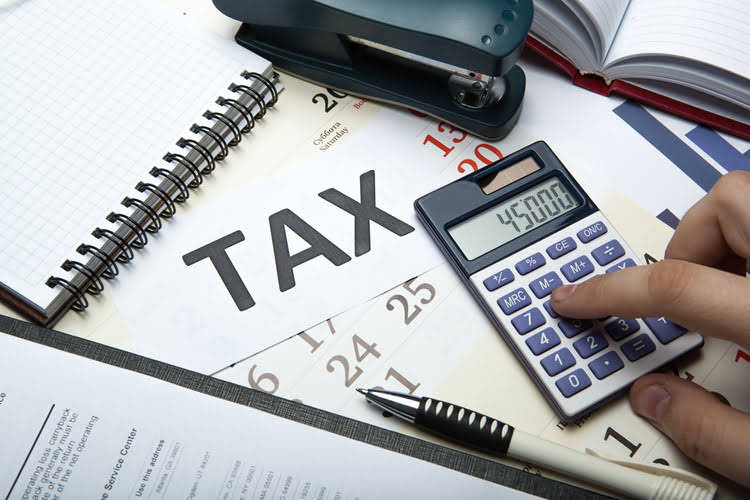
To make the Accounting Equation topic even easier to understand, we created a collection of premium materials called AccountingCoach https://x.com/BooksTimeInc PRO. Our PRO users get lifetime access to our accounting equation visual tutorial, cheat sheet, flashcards, quick test, and more. Required Explain how each of the above transactions impact the accounting equation and illustrate the cumulative effect that they have. We will now consider an example with various transactions within a business to see how each has a dual aspect and to demonstrate the cumulative effect on the accounting equation. Capital can be defined as being the residual interest in the assets of a business after deducting all of its liabilities (ie what would be left if the business sold all of its assets and settled all of its liabilities).
Financial statements
- Valid financial transactions always result in a balanced accounting equation which is the fundamental characteristic of double entry accounting (i.e., every debit has a corresponding credit).
- They are amalgamated and subsequently presented in form of a Balance Sheet that is simply a representation of the accounting equation in itself.
- When a company purchases goods or services from other companies on credit, a payable is recorded to show that the company promises to pay the other companies for their assets.
- If an accounting equation does not balance, it means that the accounting transactions are not properly recorded.
- The major and often largest value assets of most companies are that company’s machinery, buildings, and property.
In other words, the accounting equation will always be “in balance”. It’s telling us that creditors have priority over owners, in terms of satisfying their demands. While the basic accounting equation’s main goal is to show the financial position of the business. If the equation https://www.bookstime.com/ is balanced then the financial statement can be prepared.
- An asset is a resource that is owned or controlled by the company to be used for future benefits.
- Double-entry bookkeeping is a system that records transactions and their effects into journal entries, by debiting one account and crediting another.
- Or in other words, it includes all things of value that are used to perform activities such as production and sales.
- Speakers, Inc. purchases a $500,000 building by paying $100,000 in cash and taking out a $400,000 mortgage.
- The additional amount above par is reported in an account called additional paid-in capital or share premium.
What if any one of these elements changes?
As you can see, no matter fundamental accounting equation what the transaction is, the accounting equation will always balance because each transaction has a dual aspect. Often, more than one element of the accounting equation is impacted but sometimes, like with transaction 3, the same part of the equation (in this case assets) goes up and down, making it look like nothing has happened. The owner’s equity is the balancing amount in the accounting equation.

What is the accounting formula?

The owner’s equity is the value of assets that belong to the owner(s). More specifically, it’s the amount left once assets are liquidated and liabilities get paid off. Before getting into how the accounting equation helps balance double-entry bookkeeping, let’s explain each element of the equation in detail. Obligations owed to other companies and people are considered liabilities and can be categorized as current and long-term liabilities. The above accounting equation format provides the management and the stakeholders a clear snapshot of the asset, liability and equity position at a particular point of time.

- For a start-up business, the beginning amounts for all accounts are zero.
- The difference between the $400 income and $250 cost of sales represents a profit of $150.
- Here we can see the list of all liabilities that have been reported on Hershey company balance sheet for 2023.
- As we’ve learned previously, the accounting equation is a mathematical expression that shows the relationship among the different elements of accounting, i.e. assets, liabilities, and capital (or “equity”).
- Assets represent the ability your business has to provide goods and services.
- Indeed, in today’s world accounting software do not allow you to understand what is going on behind the scenes.
- However, due to the fact that accounting is kept on a historical basis, the equity is typically not the net worth of the organization.
If a company’s stock is publicly traded, earnings per share must appear on the face of the income statement. Examples of assets include cash, accounts receivable, inventory, prepaid insurance, investments, land, buildings, equipment, and goodwill. From the accounting equation, we see that the amount of assets must equal the combined amount of liabilities plus owner’s (or stockholders’) equity. The accounting equation is based on the premise that the sum of a company’s assets is equal to its total liabilities and shareholders’ equity. As a core concept in modern accounting, this provides the basis for keeping a company’s books balanced across a given accounting cycle.
Do you own a business?

This transaction would reduce cash by $9,500 and accounts payable by $10,000. The difference of $500 in the cash discount would be added to the owner’s equity. On 12 January, Sam Enterprises pays $10,000 cash to its accounts payable. This transaction would reduce an asset (cash) and a liability (accounts payable). These items provide a source of funding to run the operations of the business.

Liabilities
At the heart of HighRadius’s R2R solution is an AI-powered platform designed to cater to all accounting roles. One of the standout features of the solution is its ability to automate almost 50% of manual repetitive tasks. This is achieved through LiveCube, a ‘No Code’ platform, that replaces Excel and automates data fetching, modeling, analysis, and journal entry proposals.
What Is The Double-Entry Bookkeeping Method?
The rights or claims to the properties are referred to as equities. The inventory asset is recorded and the obligation to pay the suppliers is reflected as a liability. To learn more about the income statement, see Income Statement Outline.
